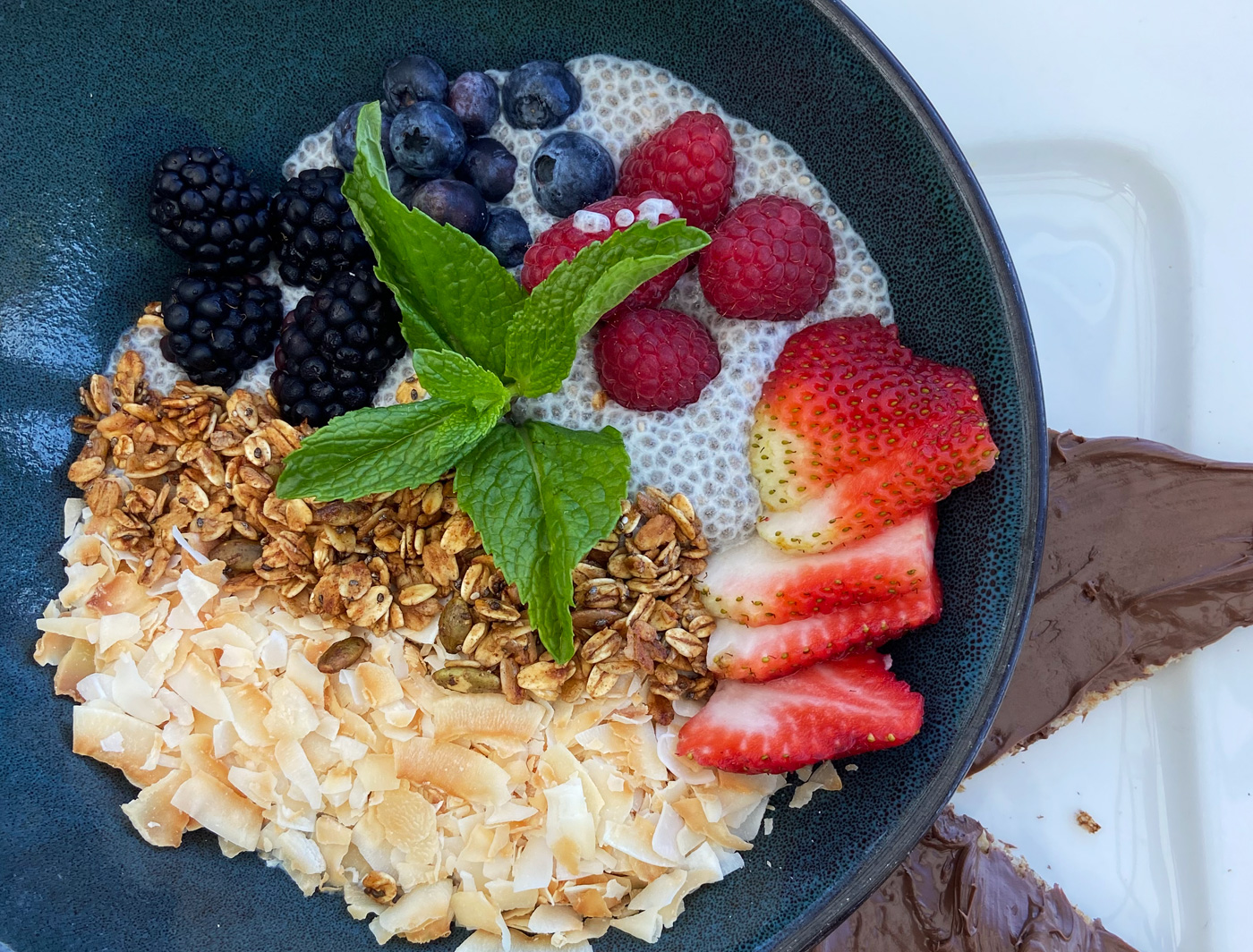Maintaining a positive mood and nurturing mental well-being is crucial, and there’s evidence to suggest that certain foods can play a role in achieving this. Including the following mood-boosting foods in your diet may have a positive impact:
- Fatty Fish: Incorporating fish, particularly varieties like salmon and sardines, is highly beneficial. These fish are abundant in omega-3 fatty acids, essential for brain health and known to enhance mood.
- Dark Chocolate: Indulging in dark chocolate can bring about mood improvement. It contains tryptophan, an amino acid that aids in serotonin production, ultimately contributing to an uplifted mood.
- Berries: Berries, especially blueberries and strawberries, are packed with antioxidants and essential vitamins. These nutrients not only enhance overall health but also combat stress and promote a positive mood.
- Nuts and Seeds: Nuts and seeds like almonds, walnuts, sunflower seeds, and flaxseeds are rich in magnesium. Studies have suggested that magnesium deficiency is linked to symptoms of depression and anxiety, making these nuts and seeds a great choice for mood enhancement.
- Leafy Greens: Including leafy greens such as spinach, kale, and Swiss chard in your diet is crucial for brain health. These greens are high in folate, a vital nutrient that supports mood improvement and mental well-being.
- Fermented Foods: Probiotic-rich foods like yogurt, kefir, kimchi, and sauerkraut have gained attention for their potential to enhance gut health. A healthy gut has been associated with improved mood and mental well-being, making fermented foods a valuable addition to your diet.
Remember, it is important to consume these mood-boosting foods as part of a well-rounded and balanced diet, alongside other nutrient-rich foods, to maximize overall health and well-being.



How Much Do I Need?
The amount of mood-boosting foods you need to consume can vary depending on factors such as your individual nutritional needs, overall diet, and specific health goals. While there are no specific guidelines on exact quantities, it is generally recommended to incorporate these foods regularly and in moderation as part of a balanced diet.
Here are some general tips to consider:
Fatty Fish: Aim for at least two servings of fatty fish per week. A serving size is typically around 3 to 4 ounces (85 to 113 grams). This can help ensure an adequate intake of omega-3 fatty acids.
Dark Chocolate: Enjoying a small piece of dark chocolate (70% cocoa or higher) on a daily basis can provide potential mood-boosting benefits. Keep in mind that moderation is key, as dark chocolate is still high in calories.
Berries: Including a handful of berries in your daily diet can be beneficial. You can have them as a snack, add them to smoothies, or use them as toppings for yogurt or oatmeal.
Nuts and Seeds: Consume a handful (about 1 ounce or 28 grams) of nuts and seeds as a daily snack. You can mix different varieties for added variety and nutrition.
Leafy Greens: Incorporate leafy greens into your meals regularly. Aim for at least one to two cups of leafy greens per day. You can add them to salads, stir-fries, soups, or have them as a side dish.
Fermented Foods: Enjoy fermented foods a few times a week. A serving size can vary, but having a small portion (around half a cup) of yogurt, a few tablespoons of kimchi or sauerkraut, or a glass of kefir can be beneficial.
These recommendations are general guidelines, and it’s important to listen to your body and adjust your intake based on your personal needs and preferences. If you have any specific dietary concerns or health conditions, it’s always a good idea to consult with a healthcare professional or registered dietitian for personalized advice.



